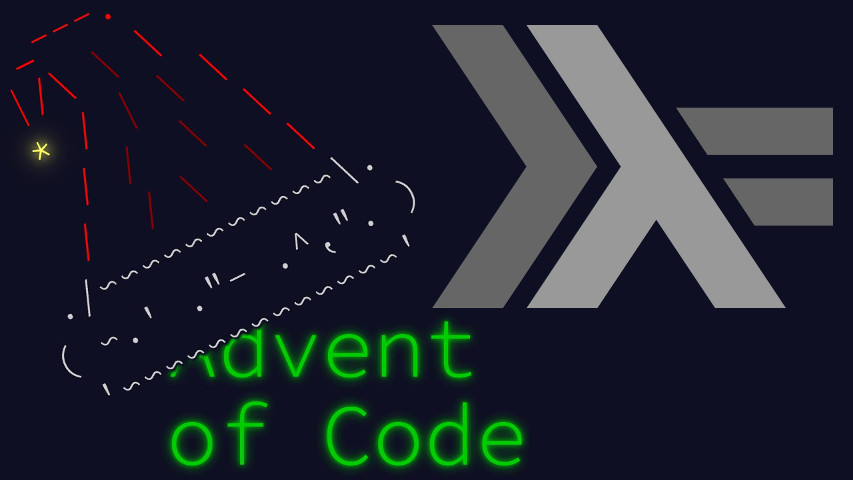The day 2 puzzle, “Dive!”, is another of these “follow an instruction sequence using two different interpretations”. This post is literate Haskell, so let’s get the imports out of the way.
import Control.Arrow ((&&&),(***))
import Control.Lens (makeLenses,Getter,(&),(+~),to,view)
import Control.Lens.Unsound (lensProduct)
import Data.Semigroup (Dual(..),Endo(..))The code defines three instructions, but two of them (up
and down) behave symmetrically, so I’ll merge their
internal representation.
data Command = Horiz Int | Vert Int
parse :: String -> Command
parse (words -> [cmd,read -> i]) = case cmd of
"forward" -> Horiz i
"down" -> Vert i
"up" -> Vert (-i)Every time I try to use ViewPatterns, I’m disappointed with the post-hoc readability. Oh well.
In part 1, the commands’ interpretation is straightforward, summing bidimensional moves.
data State1 = S1 { _horiz :: !Int, _depth :: !Int }
makeLenses ''State1
pos1 :: State1
pos1 = S1 0 0
part1 :: Command -> Endo State1
part1 = Endo . \case Horiz i -> horiz +~ i
Vert i -> depth +~ i
display :: Getter State1 Int
display = lensProduct horiz depth . to (uncurry (*))Feels weird to reach for Lens.Unsound for a simple getter product. That’s what I get for using lenses once per year. Improvements welcome.
In part 2, the interpretation gets weird. We still have a position, but are invited to keep track of an additional value: the aim.
data State2 = S2 { _pos :: !State1, _aim :: !Int }
makeLenses ''State2
pos2 :: State2
pos2 = S2 pos1 0It’s still implemented as a simple case match. You’ll note I use the
Dual monoid adaptor: Endo composes in the
usual mathematical direction, resulting in functions being applied right
to left. It didn’t matter for part 1 where they commuted, but here we
really have to apply them left to right.
part2 :: Command -> Dual (Endo State2)
part2 = Dual . Endo . \case Vert i -> aim +~ i
Horiz i -> depthChange i . (pos.horiz +~ i)
where depthChange i st = st & pos.depth +~ view aim st * iThat depthChange function is also a bit disappointing: I
was hoping to write it without making st explicit.
Improvements welcome.
Anyway, a wrapper to run the whole of it and we’re done.
main :: IO ()
main = interact $ show .
(view display *** view (pos.display)) .
((`appEndo` pos1) *** (`appEndo` pos2) . getDual) .
foldMap (part1 &&& part2) .
map parse . linesThis concludes today’s solution. See you tomorrow!



